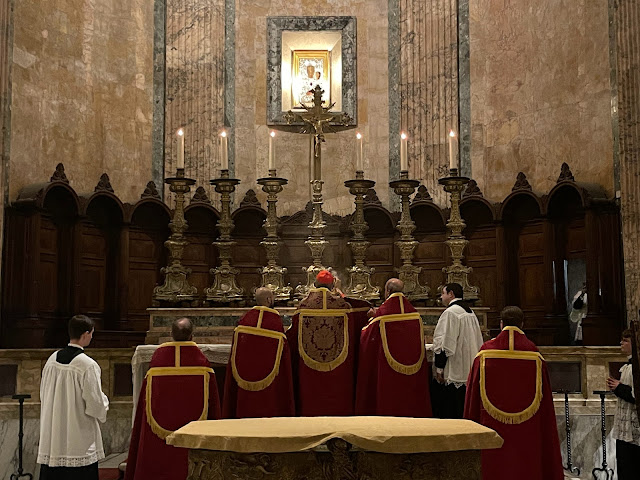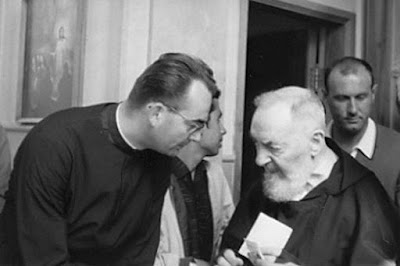Cardinal Zuppi, Abp. of Bologna, President of the Italian Episcopal Conference, led Traditional Vespers at the oldest standing religious building in Rome, the Pantheon (Sancta Maria ad Martyres), on this first day of the 2022 Summorum Pontificum pilgrimage to Rome:
The Church, which, as a main publicly owned tourist website, remains open for visitation during ceremonies had its seats filled with lay faithful, mostly young, and young priests. Fr. Claude Barthe, chaplain of the pilgrimage, made a brief pronouncement, and so did Cardinal Zuppi, joyfully welcoming the traditional pilgrims to the Eternal City.
More images below:






_(14769342724).jpg)











